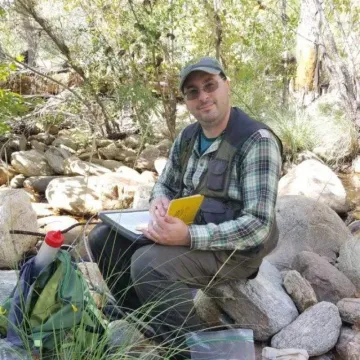
Brian Blais (2021)
Brian is a PhD Candidate for wildlife conservation and management in the School of Natural Resources and the Environment whose research bridges field ecology with zoo conservation. He shares ecological field data with zoos to improve conservation breeding programs and in turn, participates in zoo-based studies to better guide field efforts. Brian’s research largely revolves around common and rare gartersnakes in Arizona—'canary in the coalmine’ bioindicator species of healthy riparian ecosystems—but this mutual information linkage is globally applicable to a variety of species. Brian tracks gartersnakes to understand their movements, behaviors, and habitat use; these data can guide species reintroduction efforts and conservation blankets for other species. His commitment to collaboration, mentorship, and species conservation undoubtedly made Brian competitive for the Calder Memorial Scholarship, which will fund summer field research and build upon the bigger picture of his dissertation and professional development as a wildlife biologist. You can read more about Brian's 'conservation bridges' here and visit his lab profile.
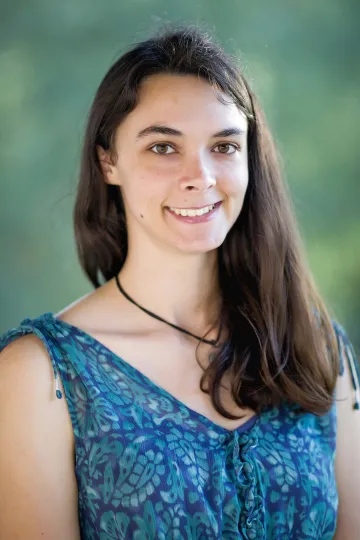
Katie Chenard (2018, 2021)
My research is centered on the connection between the brain and behavior, and in particular on mechanisms behind the development of personality traits, behaviors which are relatively consistent across time and contexts. A better understanding of the factors underlying the formation of these traits is important as they are often drivers of an individual’s interactions with its environment. The William Calder scholarship will help me to fully invest my time this summer into what will be my final experiment of my PhD, connecting variation in early life environment with brain development and personality in zebra finches using structural MRI.
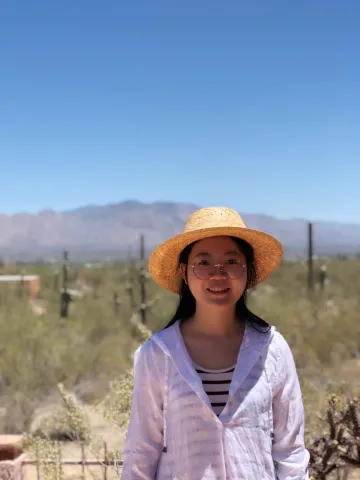
Chenlu Di (2018, 2020, 2021)
I am a Ph.D. student from the Department of Ecology and Evolutionary Biology. I am interested in evolutionary questions. Currently, my research connects medical questions with evolutionary thoughts. We are trying to explore the difference between genes associated with human diseases and genes that do not associate with human diseases. Also, we want to find out what evolutionary process might cause the difference. This could be important for us to understand the relationship between disease in the current human population and the evolutionary history of humans.
It's a great honor to receive the 2021 Calder Memorial Scholarship. This scholarship is an important financial support for me to focus on doing research during the summer. Not only as financial support but receiving the scholarship is also very encouraging to me. I really appreciate that Calder Memorial Scholarship also awards to international students. It is one of the most important scholarships that support me in pursuing my Ph.D. degree.
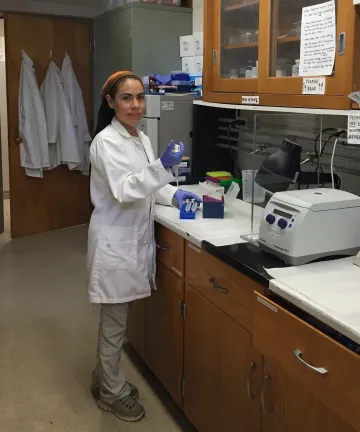
Karla Vargas (2018, 2019, 2020, 2021)
I am a PhD candidate in Wildlife Conservation and Management in the School of Natural Resources and the Environment at the University of Arizona. My research focuses on Conservation Genetics and Genomics of endangered species. Particularly, the data I am generating through my dissertation work will aid the recovery efforts for the masked bobwhite quail from south-central Arizona and Sonora, Mexico. Masked bobwhites are part of the uniqueness of the Sonoran Desert biome, and their recovery is essential for the restoration of the desert grasslands that host a wide diversity of wildlife in south-central Arizona and Sonora, Mexico.
Like many other Latinx women and other minorities largely underrepresented in science, I grew up in a small town with limited opportunities for research-based careers and among gender biases that discouraged girls from careers in science. My academic journey has been challenging, but I feel extremely fortunate and grateful to have had the opportunity to further my education, be the first person in my family to pursue a PhD, be able to continue the program in the midst of a world health crisis and have the financial support to make it happen.
During my program, I have strived to give others the opportunity to learn. I have worked as an instructor and a mentor. I have trained undergraduate and graduate students from diverse backgrounds. My dissertation work has also given me the opportunity to improve my science communication skills and share my research by presenting my work at regional conferences and as a guest lecturer for SNRE and Pima Community College classes. I have also made my research available to a broader audience by participating in the creation of a short video about for the YouTube channel Wild Connections TV (https://youtu.be/sEFQVPXtMOA), hosted by scientist and science communicator, Dr. Jen.
I am proud of what I have accomplished during my PhD studies, both as a researcher and as educator. I recognize, however, that none of what I have done would have been possible without the financial support I have received. Obtaining financial assistance during the summer without a teaching or research assistantship is particularly challenging, making it impossible to dedicate long hours to my dissertation. Thus, I am very grateful and sincerely honored to have been selected as a recipient of the 2021 William A. Calder III Memorial Scholarship. This endowment’s generous support will allow me to have much needed flexibility in my schedule this summer. The financial support is providing me the time and focus I need to complete my doctoral dissertation, which is an invaluable gift! Thank you for providing me peace of mind amid the hard circumstances we are living. I will always be grateful to this endowment for supporting my academic journey!
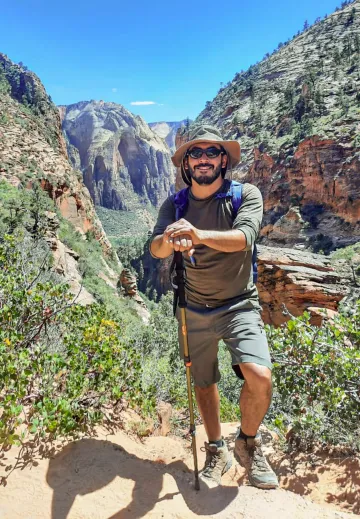
Miguel Grageda Garcia (2019)
I am a doctoral student at the School of Natural Resources and the Environment. I am focusing on studying how human activities such as highways, livestock production, and fence development are affecting the endangered Sonoran pronghorn population in the Pinacate Biosphere Reserve in Sonora, Mexico. I am doing this approach by using camera traps to obtain records of presence and habitat use. You can find more information in this link https://bit.ly/2SuBzA9
In addition, I am studying the current situation of another endangered species in the region: The Sonoyta mud turtle, that inhabits the Sonoyta River.
I am very grateful for the support that the Calder Scholarship has given me, helping to finance part of my field work, covering summer expenses and student fees.
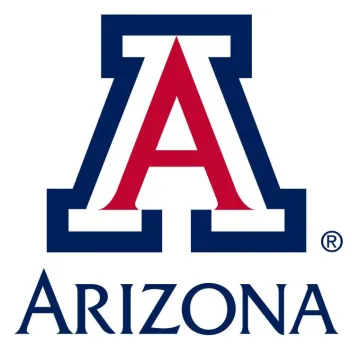
Brian Maitner (2019)
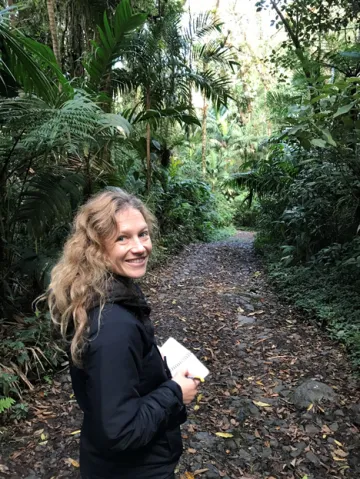
Ahvi Potticary (2018, 2019)
Broadly, my research address the question of where new behaviors come from. The evolution of behavior is very intriguing, because it can show both great flexibility and also stability (for example, variation in personality traits). What physiological mechanisms reconcile this tension between flexibility and stability? What properties of the systems underlying behavior determine when and how new behaviors evolve? I study the evolution of social and cooperative breeding behavior (where young individuals help their parents raise siblings instead of breeding on their own), in western bluebirds. Western bluebirds are a particularly informative system for the evolution of behavior, as they are currently moving into new habitat (man-made nest boxes), that varies significantly from the habitat they have historically inhabited (post-fire successional forest). This habitat shift changes many local and population contexts for western bluebirds, with interesting results for the parental care strategies we see across populations. Please visit my website for more information: https://ahvapotticary.weebly.com/
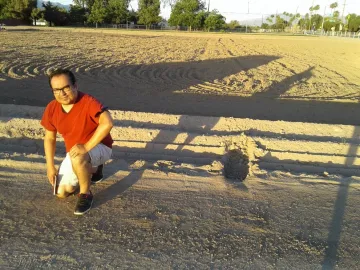
Miguel Gonzalez (2018)
As a PhD Student in the school of Natural Resources and the Environment, I am focusing on the engagement of environmental issues and crop production processes in semi-arid areas. Specifically, my research interest is aimed at agro-environmental modeling and regional development in central Mexico’s rain-fed croplands. The connection of my current research was fueled by my professional experience as a research assistant at the National Institute for Forestry, Agriculture and Livestock Research in Aguascalientes, Mexico. Calder Scholarship will help to finance the summer term to finish my degree, and also to strengthen the academic links between the Institute I work for and the faculty at the University of Arizona regarding sustainable agricultural approaches.
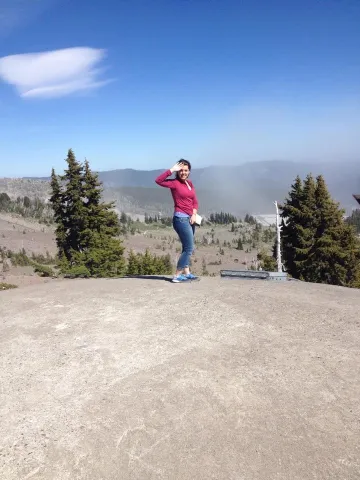
Kayla Sale-Hale (2018)
My research synthesizes the structure and dynamics of food webs and pollination networks into a common mathematical framework. This framework connects population dynamics and species traits to the persistence of threatened pollinator populations, and can be used to illuminate the ecological forces leading to their decline. This will allow systematic explorations of leveraging naturally occurring species interactions to improve ecosystem resilience and prevent extinctions, particularly of critically important mutualists. The Calder scholarship is funding my summer work investigating the traits of omnivorous pollinators that lead to persistence and productivity of terrestrial ecosystems.
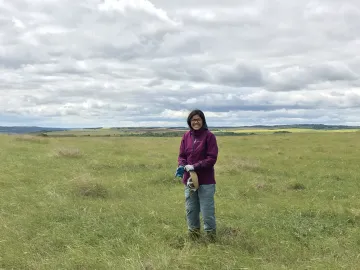
Pratima K.C. (2018)
My research investigated the trend and relationship between vegetation growth as estimated from Normalized Difference Vegetation Index (NDVI) and drought indices over the Mojave, Sonoran, and Chihuahua Deserts and the Apache highlands on the Southwest United States over a period of 16 years (2000-2016). The knowledge derived from these large-scale analyses can be used to develop plans to conserve and protect natural resources at regional and global scales. For my Ph.D., I am focusing on integrating information technology to present large-scale insights in a meaningful way to decision makers, natural land managers, and to the general public using interactive maps in web-based decision support systems. The focused research objective is to develop drought forecasting models and embed them into web-based, interactive maps that could be used by other researchers studying natural systems.
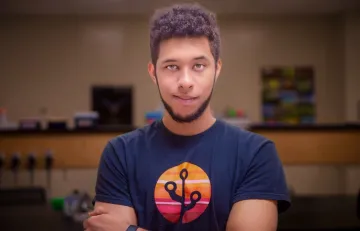
Cristian Roman-Palacios (2018)
I am especially interested in understanding large-scale patterns of biodiversity by using comparative methods to address questions lying at the interface between ecology and evolution. I’m also widely interested in the systematics of different animal groups (frogs, insects, and fishes), besides the effects of climate change on local populations. The W. C. scholarship will allow me to attend different conferences, and present research I have done during the first two years of my Ph.D.
Find more information on my website: http://cromanpa94.github.io/cromanpa/
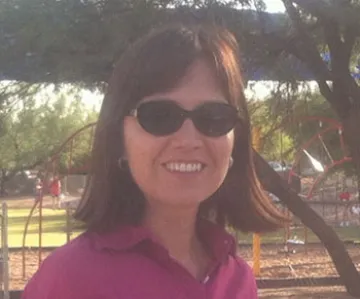
Adriana Zuniga (2013, 2014)
From neighborhoods to wellbeing and conservation: optimizing the usage of natural open spaces through design
Adriana studies different neighborhood designs and their impacts on the usage of natural open spaces (NOS) (e.g., parks, greenways) in cities and how this affects the wellbeing of their residents and their level of conservation support for wilderness. Questionnaires and focus groups are used to measure the usage of NOS, conservation values, and perceived level of wellbeing in residents of different neighborhoods in Tucson, AZ. Designing neighborhoods that preserve NOS within cities and encourage potential synergies that increase human utilization of NOS has the potential to enhance wellbeing and support the preservation of nature within cities and beyond.
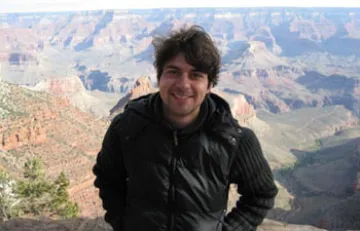
Alex Ochoa (2010, 2011, 2012, 2013, 2014)
Functional Genomics of the Endangered Florida Panther
I am studying the evolutionary consequences of the 1995 Texas puma genetic introgression into the Florida panther gene pool. Currently, the Culver Lab at the University of Arizona is developing a whole-genome capture solution to target and sequence Florida panther functional (i.e., coding) genetic diversity. My research objectives are to associate functional genetic diversity with diverse fitness traits in the Florida panther, evaluate the success of the Texas introgression as a function of purged detrimental variation vs. genetic swamping of Florida panther ancestry, and optimize efforts for the management and conservation of the endangered Florida panther.
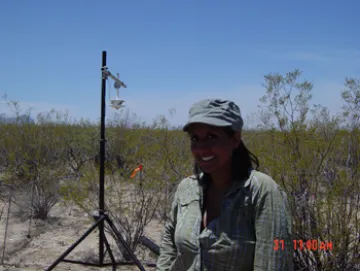
Zulia Sanchez Mejia (2012)
Zulia was honored with the William A. Calder Memorial Scholarship in Fall 2012. As part of her doctoral research Zulia performed field work at the creosotebush ameriflux site in the Santa Rita Experimental Range. Her research contributes to our ecohydrology understanding of the role of soil moisture in two different soil layers -a shallow layer which is in fast reach of atmospheric demand and a deep layer which is in slow reach of atmospheric demand-, and how this influences albedo and the height development of the planetary boundary layer in semiarid ecosystems.
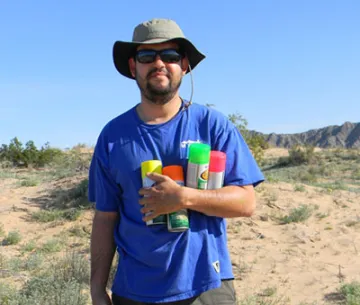
Eugenio Larios-Cardenas (2010, 2011, 2012)
The Calder Scholarship helped me monitor the fitness consequences of seed size in the field for three years, to conduct an experiment where I looked at the influence of water availability and competition on seed size selection, and to conduct another experiment on maternal effects of competition on offspring size and its consequences for seed dispersal. In 2012, it also helped me present my findings in an international conference (Seed Ecology 4 in Shenyang, China).
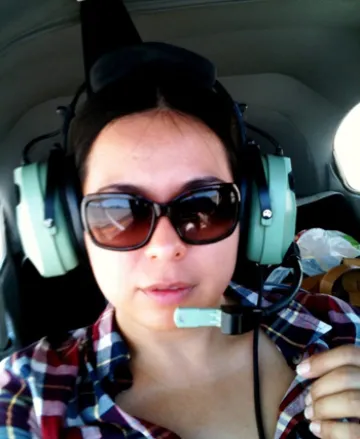
Martha Gomez Sapiens (2010, 2011)
My PhD work is focused on evaluating the importance of intertidal and anthropogenic wetlands as habitat for shorebirds in the Colorado River Delta, the use of a water budget model to predict effects of water management on shorebird and marsh bird habitat and the use of vegetation indices to establish species habitat models for marsh birds. The W. C. grant funded on the ground shorebird surveys and aerial surveys that I used to determine the shorebirds abundance and distribution patterns at a large scale, including inaccessible areas of the Colorado River Delta and Upper Gulf of California.

Adrian Munguia Vega (2006, 2007, 2008, 2010)

Karla Pelz-Serrano (2007, 2008, 2010)

Alberto Macias-Duarte (2006, 2007, 2008)


